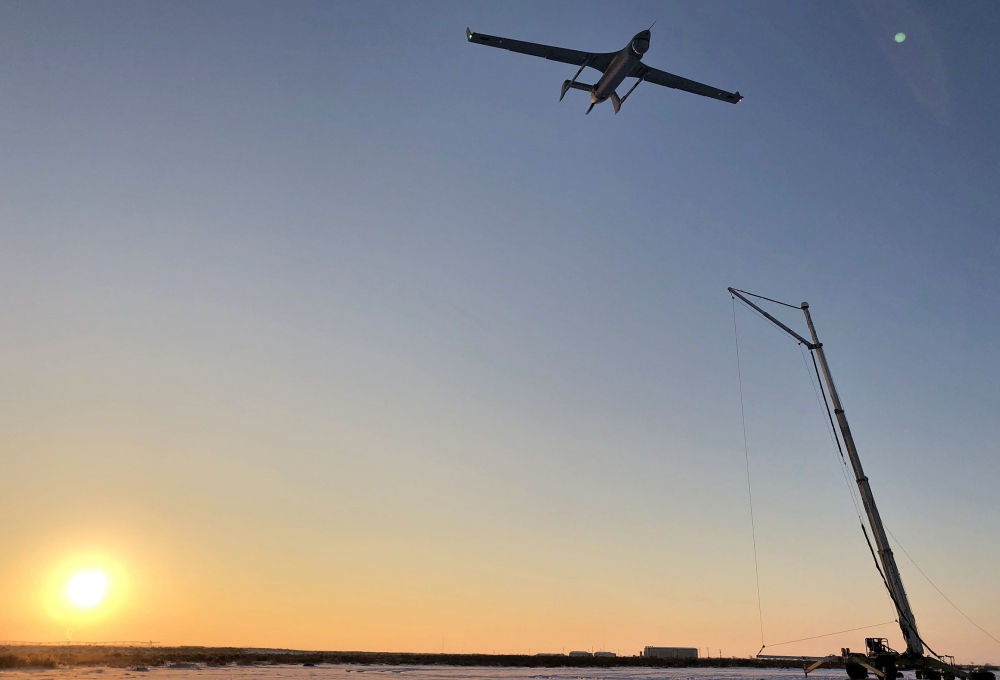of Trondheim, Norway, and Insitu, Inc. are initiating a project to optimize Insitu’s Integrator Unmanned Aircraft System (UAS) for the challenging environment of the Arctic and High North.
The project will enable the Integrator UAS to operate during atmospheric icing conditions by incorporating UBIQ Aerospace’s D•ICE solution, an autonomous, electrothermal system optimized for the size, weight, and power (SWAP) available on small, tactical UAS. Once complete, the Integrator equipped with D•ICE will be the first tactical UAS capable of operating routinely in known icing conditions.
Atmospheric icing has long been one of the great inhibitors to UAS operations because most UAS platforms are designed for warmer climates and lack the SWAP for traditional anti-icing or de-icing equipment.
According to Kim Lynge Sørensen, UBIQ Aerospace co-founder and CEO,
“Our objective is to make the Integrator UAS operationally available even during the cold weather conditions experienced in Northern Europe and the Northern- and Arctic Seas. We will achieve such weather robustness by integrating our proprietary D•ICE technology into one of the most proven UAS on the planet.”
Dave Funkhouser, Insitu’s Director of International Business Development, adds:
“Insitu has several NATO and NORDEFCO customers who need UAS that can operate year-round in the Arctic and High North. Whether in Alaska, Andøya, or anywhere in-between, this project will make it possible, and we’re thrilled to be working with an innovative Norwegian company such as UBIQ Aerospace.”
The Integrator UAS is a runway-independent, NATO Class I UAS with an 18-kilogram payload capacity and a maximum takeoff weight of nearly 75 kilograms. It can operate on land and ships and features a modular construction that simplifies maintenance and enables payloads to be easily swapped between missions. The Integrator offers more than 24 hours of endurance, depending on the payload configuration and environmental conditions. Insitu has delivered more than 50 systems to customers around the globe.
The project begins in November 2021 with a comprehensive study of the Integrator UAS that will “provide insights related to cold weather vulnerabilities and reveal optimal design options for ice protection,” according to Astrid Myckland Stevik, UBIQ Aerospace’s project manager for the effort.
Source: Press Release

